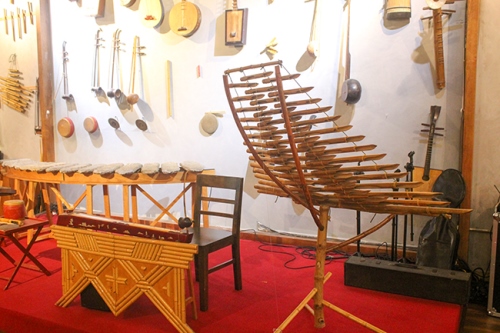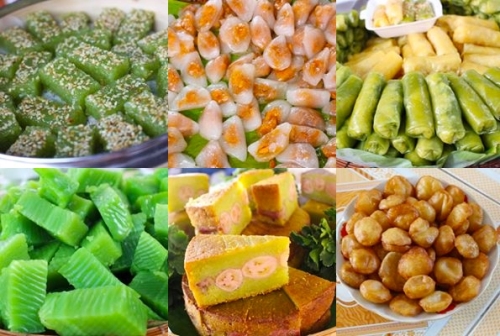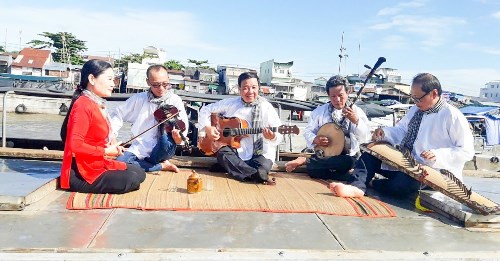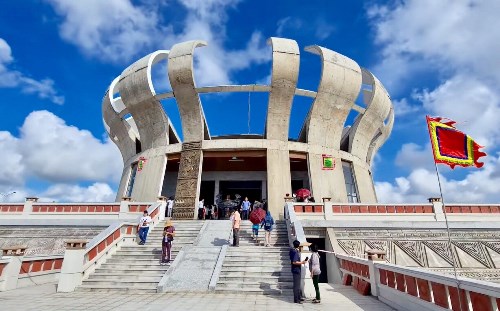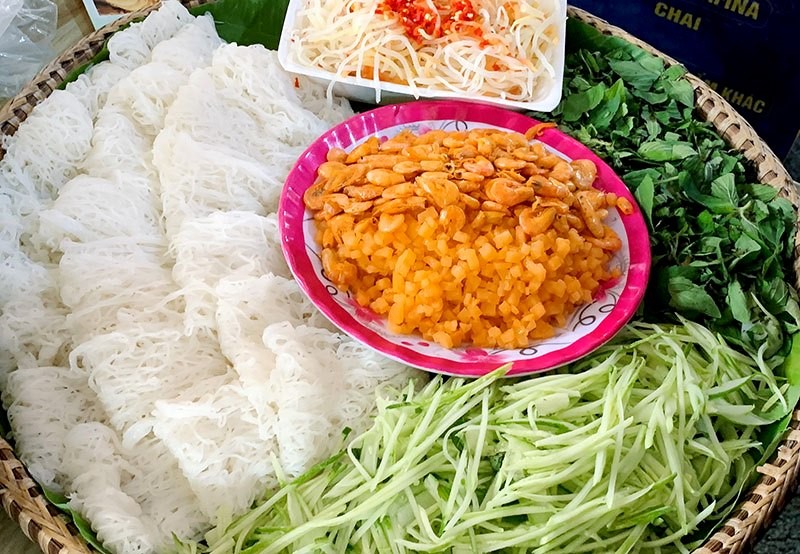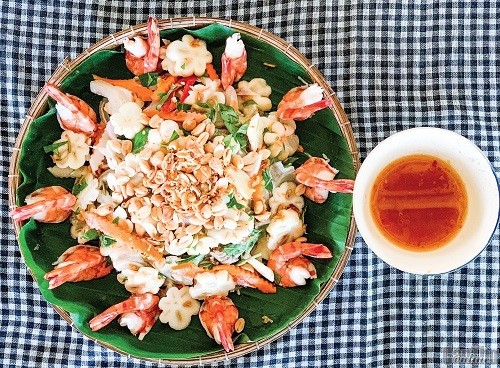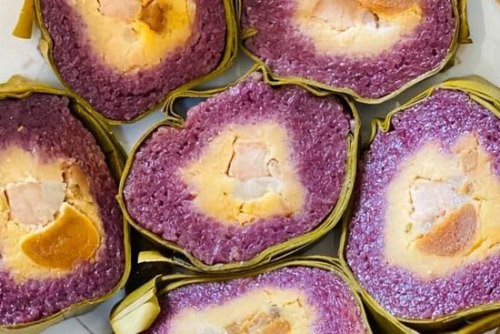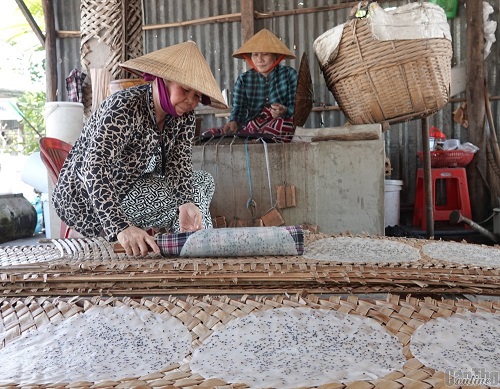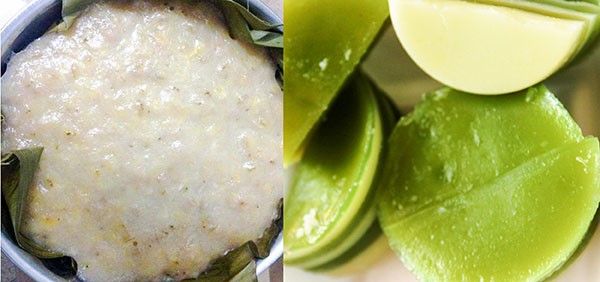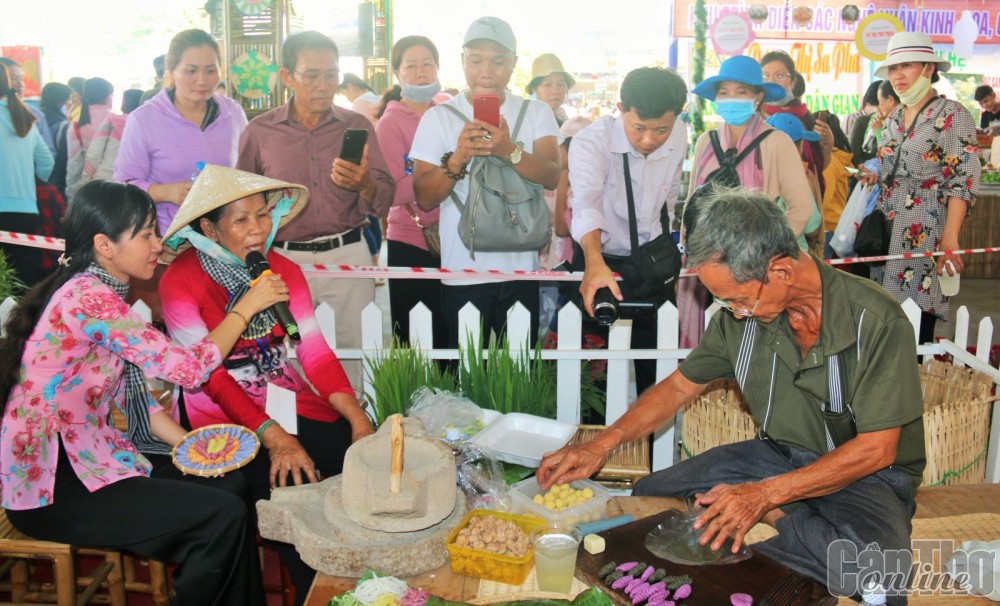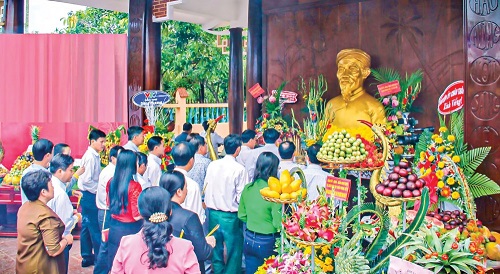
Festivals in the primitive period were not yet separated from other human activities. At that time, it was a combination between ceremony and feast day which means there was still no separation between ceremony and feast day. The original worship rituals are mainly to express the human heart, gradually developed to be complete and exquisite. People increasingly require time to rest and relax after hard working hours, so artistic factors and recreational activities are also evolving to become indispensable elements in society. On the other hand, over a long period of time, some elements have been completely separated from the original and are only pure entertainment, such as folk games in festivals. And this is also the process of formation and development of the Vietnamese folk festival (1).
Vietnamese folk festivals are derived from the beliefs of a community (a religion, a deity, or a god), so the spiritual element of the community festival is quite strong. Obviously, what binds people in a community is not only economic relations, social relations, but also spiritual relations. The sacredness of the festival has guided the whole character and action of the assembly. It is manifested in rituals, ceremonies, and cultural activities during the festival, to honor what is beautiful and benevolent. Participation in the festival is considered to be a respectful entry into the spiritual values of the country and the nation (2).

Ky Yen is a long-standing traditional festival, available in almost all localities in the Southern region. In the photo is a “hát bột” (Vietnamese classical opera) ceremony during the ritual of worshipping the Village’s God.
Festivals no matter what type they are, always honoring the worshiped nature deities, national heroes, community or kinship tutelary gods, or ancestral gods. Regardless of which deity is worshiped, that deity must have made a great contribution to the village and homeland. It is because these deities are heroic persons or historical figures with real contributions so that people have built communal houses temples to worship and express their gratitude. And Vietnamese folk festivals always convey the meaning of respect and gratitude to the deities that the locals worship.
These cultural values of festivals follow the footsteps of the Vietnamese people from the North to the South. Initially, when arriving in the new place, the people could not help but be afraid of the deserted land, the vast sky, the immense water, the wild jungle, the fierce animals, different living conditions from their homeland, etc. All caused them to have the idea of worshipping the gods. The new land has different natural conditions from their hometown, so the beliefs and festive cultures they brought along are not suitable. Therefore, some of the original beliefs and festive cultures were changed. Despite changes, the core cultural values in the system of Vietnamese folk festivals are always preserved. It is the respect and gratitude to the deities that the festival worship and to remember the roots of the Vietnamese people every time the festival takes place.
The cultural values of the festival are practiced and shown clearly in the lives of the local people in the southwestern region. Setting foot in a remote land and facing the difficulties of natural disasters right from the beginning of land reclamation, Vietnamese people pray to Gods and Buddha for a peaceful life. When life is getting better, they think that it is the result of their own efforts and the protection of Thành Hoàng (community tutelary gods), Bà Chúa Xứ (the Lady of the Realm), Nam Hải’s Mother… To show their respect and gratitude, the locals have built places of worship, offered incense day and night, and organized annual festivals. In the resistance war against the French colonial invasion, many great national heroes appeared namely Nguyen Trung Truc, Thu Khoa Huan, Thien Ho Duong, Nguyen Van Ton, etc. To show gratitude, people in the southwestern region have built temples, pagodas or worshipped the heroes at several available places of worship. The festival to commemorate the historical heroes annually held in the southwestern region is a testament to the name of the people who live forever in the heart of the people.
To sum up, the traditional festival in the Southwestern region aims to show respect and gratitude to the personages, who are worshipped as supernatural figures or historic characters, that have contributed to bringing a peaceful, independent, and free life to our homeland. That is also the moral lesson of “when you drink water, think of the source” for thousands of generations. Besides, the traditional festival in the Southwestern region also conveys the message of remembering your origin and your homeland. That is the natural source of which man is a part. It is also the natural source of the community and the source of the people who have created culture and history ...
In modern life with great advances in science and technology, people are in great demand to find their roots to confirm their community roots and cultural identity. The traditional culture of which the festival is a symbol can satisfy those needs. Therefore, the traditional festival is still valuable and attractive to more and more people (3).
Tran Phong Dieu
--------------------------------
(1) Nguyen Quang Le (2014), Cultural identity through Vietnamese traditional festivals, Social Sciences Publishing House, page 24-26.
(2) Truong Thin (1993), “Festivals and tourism in Vietnam”, printed in “Traditional festivals in the modern social life”, Dinh Gia Khanh - Le Huu Floor (editor), Social Sciences Publishing House, p. 208.
(3) Ngo Duc Thinh (1993), “The cultural values of traditional festivals and the needs of today's society”, printed in “Traditional festivals in modern social life” (Dinh Gia Khanh - Le Huu Floor (editor)), Social Sciences Publishing House, p.286.
* “when you drink water, think of the source”: remember where and how the water came from. Don't just be thankful for the water, be thankful for all the elements and processes (both past and present) that allowed you to enjoy that humble cup of water.
Source: Can Tho Newspaper - Translated by Hoang Dat





